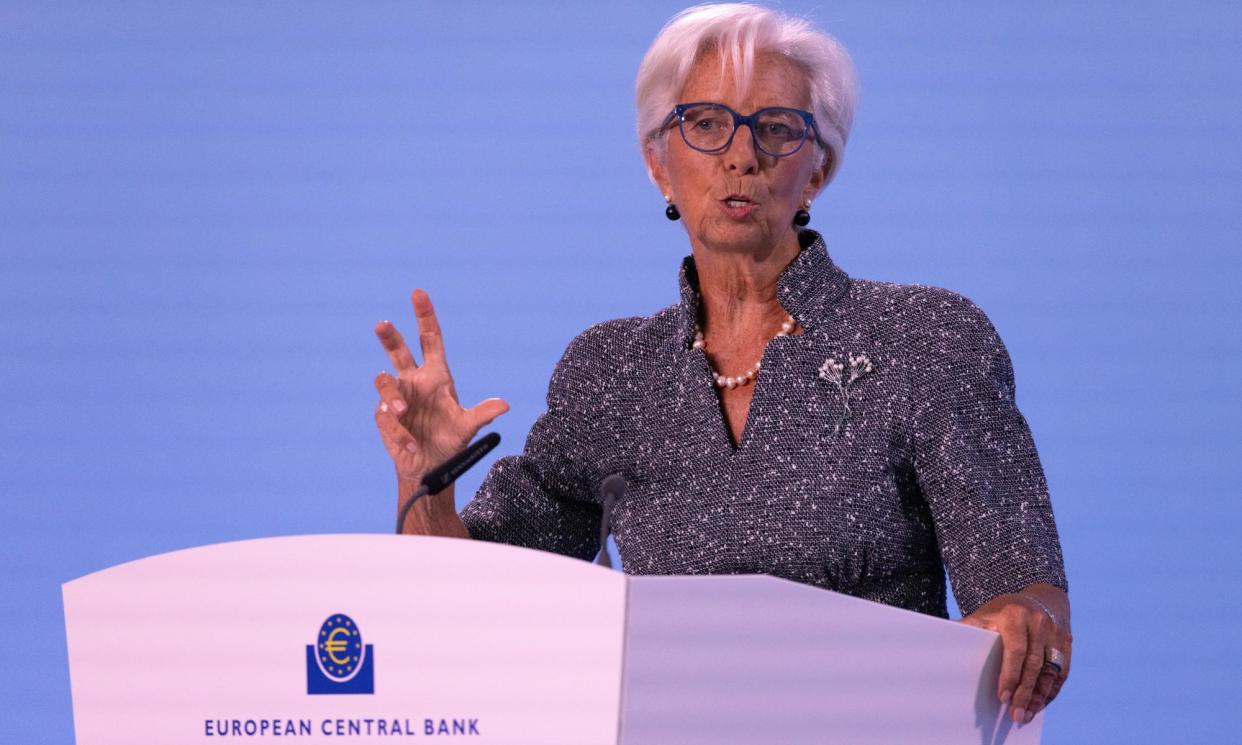ECB cuts interest rate to 3.5% and warns of weak eurozone growth

The European Central Bank has lowered interest rates for the second time this year, as it warned that economic growth in the eurozone will be weaker than it had hoped.
The ECB’s governing council decided to lower its deposit rate – paid to banks that make overnight deposits with the Eurosystem – by a quarter of a percentage point, from 3.75% to 3.5%, on Thursday.
The move was expected, as inflation in the eurozone fell to 2.2% in August, down from 2.6% in July and near the ECB’s 2% target.
In a sign that Europe’s economic recovery is faltering, the ECB lowered its forecast for GDP growth this year from 0.9% to 0.8%. For 2025, growth expectations were trimmed from 1.4% to 1.3%, and from 1.6% to 1.5% in 2026.
The ECB said it eased borrowing costs because “inflation is gradually coming down and has been developing as we expected”.
The central bank’s economists expect inflation to increase in the latter part of this year, saying “wages are still rising at an elevated pace”, before dropping in 2025 and 2026.
Thursday’s cut follows June’s quarter-point cut to the deposit rate, which the ECB had raised to a record high of 4% after inflation soared across Europe in 2022 and 2023.
The ECB was coy about whether it would lower rates again at its next meeting in October. Its president, Christine Lagarde, told reporters in Frankfurt that “we are not pre-committing to a particular rate path … We are going to decide meeting by meeting. I’m not giving you any commitment of any kind as far as that particular date is concerned and our path is not predetermined at all.”
She said the slowdown in Germany’s economy – currently on the brink of recession – had been included in the ECB’s latest growth forecasts.
Kathleen Brooks, the research director at XTB, said the financial markets expected more cuts from the ECB this year.
“The problem for the ECB is that financial markets do not seem to believe that they are still undecided about the future of monetary policy,” Brooks said. “The interest rate futures market is still pricing in 60 basis points of rate cuts for the rest of this year, with rate cuts expected in October and in December.”
Investors are expecting the US Federal Reserve to start easing policy next week, with a quarter-point cut to its benchmark interest rate. The Bank of England also meets next week, but is expected to delay a second cut to the UK rate until November.


